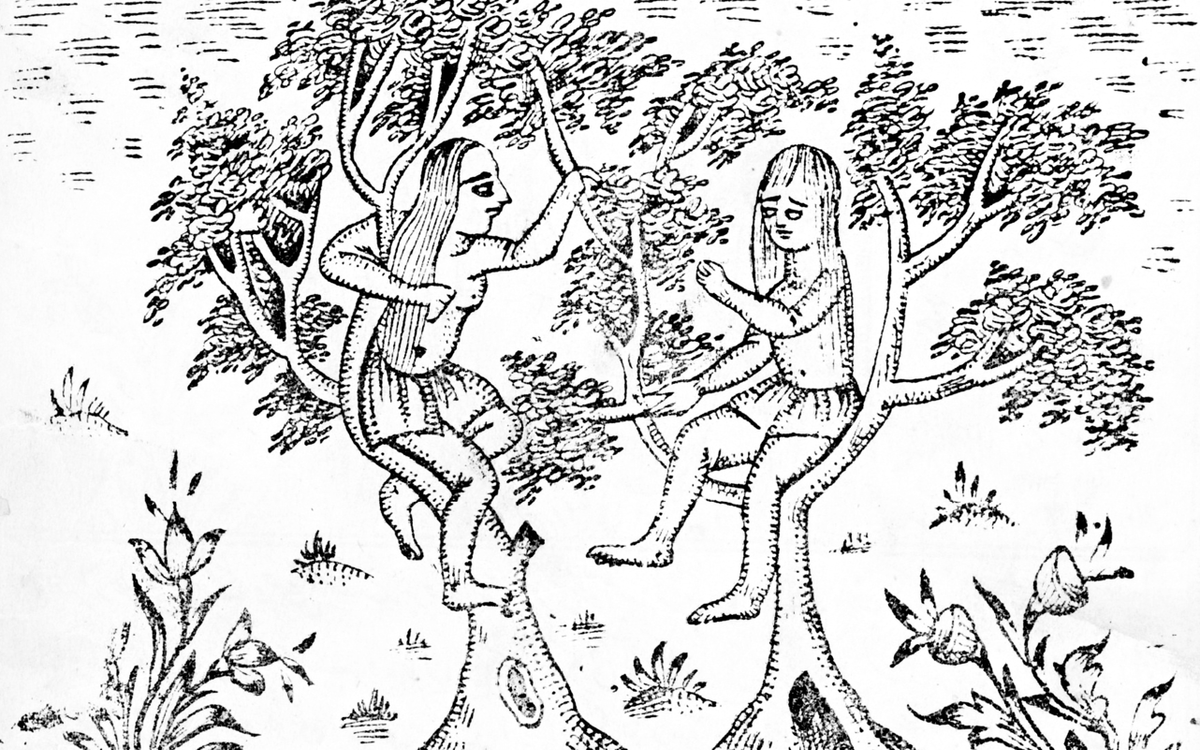The Journey of Return: Exilic Solidarity in the Post-Oct. 7th World
It is fatal that citizens become de facto exiles in their own country. It is this internal exile that must be reclaimed today, transforming it from a passively suffered condition into a chosen and actively pursued way of life.

“Exile is the very form of Jewish existence on Earth, and the entire Jewish tradition — from the Mishnah to the Talmud, from the architecture of the synagogue to the memory of biblical events — was conceived and lived from the perspective of exile.” — Giorgio Agamben, “The End of Judaism”
To be in solidarity with another is to put yourself at risk. Practices of solidarity require us to radically question the social identities we have acquired as citizens of nation-states. While the nation-state offers the bond of fraternity — a kinship limited to one’s “people” — solidarity upends these borders of the Self by radically challenging who is inside and who is outside the national territories that traditionally define the limits of the Political. To be in solidarity is to recognize the exiles that we all are.
Taking up this politics of solidarity, “The Journey of Return,” by the Vilna Goles responds to a recent article by the philosopher Giorgio Agamben titled “The End of Judaism,” which strikingly defines Zionism as the destruction of Judaism’s exilic, intercommunalist, roots.
The article was first presented by Noah Brehmer as part of a talk in Vilna last December titled “Poppies and Daffodils: Jewish anti-Zionist Solidarity and its Absence.” It was read alongside an excerpt from a draft of an essay written by friends from Palestine and its surroundings, which they call an “accanto” to Agamben’s article; this will be released on Dabartis.com soon.
The Vilna Goles are a loose group of jewish comrades. Some of us live in contemporary Vilnius where we are doing our best to summon the spirits of the anti-authoritarian, internationalist, jewish and working class legacies of the city's past.
The Journey of Return: Exilic solidarity in the post-Oct. 7th world by the Vilna Goles
Anti-Zionism, for us Goles(1), is more than an opposition to the forms of belonging that Zionism imposes — it is its own practice of community. Agamben’s brief article “The End of Judaism,” drawing from a study by Amnon Raz-Krakotzkin, helps us to shed light on this basic fact. We, the Goles, the exiles of Vilna, are at home in our affirmation that no state can be our home nor the proper home of humanity.
Our historic exile following the destruction of the ancient kingdoms, was redeemed not through a return to those lands, but by the transformation of exile-as-loss into exile-as-life. Goles, a people formed in exile, scattered about the world, turned the pain of exile into the joy and horizon of a dispersed and stateless humanity.
The rupturing of the walls of so-called contemporary Jewish identity, by the Palestinian revolutionary tradition has urged new possibilities of belonging to this exilic life-world. For some of us this is yidishkeyt: the world of exilic jewish existence. Like other exilic forms of life, yidishkeyt, if an identity at all, is existentially precarious at its core — a contested domain of meaning, which prioritizes a living ethics over any recourse to the moral dogmatisms implied in a return to authentic being.
Yet let us be clear that our exile, with its joys, its pains, and its horizons, can't be consolation — or far worse, justification — for the horrors of Palestinians' displacement and genocidal erasure today. As one Gole wisely observed in 1947, to face the future is to accept that “if there is no tikun, no redemption for mankind, then there is no redemption for the Jews.”(2)
Indeed, while Agamben’s focus here remains on Zionism’s radical negation of Judaism as a cultural and social form, we must not let this shadow the other negations Zionism perpetrates today. Namely, the unthinkable atrocities the Zionist state wages against the Palestinians — perhaps the exemplary subjects of exile in our own time.
Our priorities are clear. As the jewish Goles, we turn toward the Palestinian Ghurba — the Palestinian concept of exile — for orientation in facing the future. And what is this guidance and future? If our jewish belonging as Goles, now faces near complete erasure in the aftermaths of the Nazi and Zionist imperatives, the Ghurba are the contemporary inheritors of the movement of resistance and belonging of a life-world shared with our historical people — the life-world of exiled humanity.
From a condition of disorientation, of almost complete destitution, that has come as the consequence of over a century of our exilic peoples dismantling, we turn toward the Ghurba for what will be a difficult journey of return. A return that, as Edward Said put, will not be an originating — exile’s negation — but a beginning again, a rebuilding together, in the here and now. The Palestinian movement of return “evades purity” and “rejects totality,” as Adam Hajyahia writes; it is not “a negative desire for something they lack [...] but a redeeming principle that pursues the abolition of the conditions that render exile the only remaining possibility.” (3)
Finally, let us see this return in opposition to the impoverished politics of nation-states that have brought us to where we are today — a politics founded on the fundamental division between the humanity of the citizen and the subhumanity of the exile. While we cannot deny the debated question of what path Palestinian justice will take — the nation-state is certainly present — we can surely find in the widely rooted ways of life of the Palestinian people a movement oriented toward the destruction of walls: practices of dwelling against the state-forms logic of originating, enclosing, and owning.
Let us begin again from the politics of the global community of exiles. A form of life beyond nation-states, that as Agamben will stress in an article shortly following “The End of Judaism”, concerns us all: “It is fatal that citizens become de facto exiles in their own country. It is this internal exile that must be reclaimed today, transforming it from a passively suffered condition into a chosen and actively pursued way of life. Where citizens have lost even the memory of politics, only those exiled in their own city will make politics. And only in this community of exiles, dispersed in the formless mass of citizens, can something resembling a new political experience become possible here and now.”
Notes:
- Gole, the Ashkenazi/Yiddish etymology for exile.
- Leyvick Hodes. “Mitn ponem tsu der tsukunft.” (1947) Biografye un shrift. Ed. Sofia Dubnov-Erlich. New York: Farlag undzer tsayt, 1962
- Adam Hajyahia, The Principle of Return: The repressed ruptures of Zionist time, Parapraxis, 2024. https://www.parapraxismagazine.com/articles/the-principle-of-return





